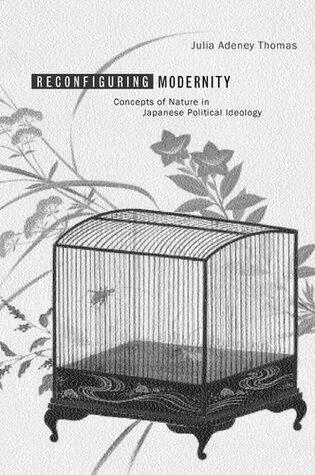
Reconfiguring Modernity: Concepts of Nature in Japanese Political Ideology
Noch keine Bewertungen
Science & Technology
History
Manga
Format
Gebundene Ausgabe
Seiten
260
Sprache
Englisch
Veröffentlicht
Jan 7, 2002
Verlag
University of California Press
ISBN-10
0520228545
ISBN-13
9780520228542
Beschreibung
In her insightful exploration, Julia Adeney Thomas examines the intricate relationship between nature and Japanese political ideology. She delves into how various interpretations of nature have shaped Japan’s historical and contemporary political discourse. By reconfiguring modernity through this lens, Thomas uncovers the often-overlooked connections between environmental perceptions and political actions within Japanese society.
The book takes readers on a journey, revealing how different concepts of nature influence political ideologies and underpin national identity. Through carefully curated examples, it highlights the tension between traditional beliefs and modernity, showcasing how this dynamic has informed policy decisions and societal values. Thomas’s work not only contextualizes Japan’s political landscape but also prompts a broader reflection on the role of nature in shaping governance and civic life.
Through rich analysis and compelling narratives, Thomas invites readers to reconsider familiar ideas about nature and politics. This fresh perspective provides an essential framework for understanding contemporary challenges in Japan, while also engaging with pressing global conversations about the environment and governance, marking an important contribution to both political science and environmental studies.
The book takes readers on a journey, revealing how different concepts of nature influence political ideologies and underpin national identity. Through carefully curated examples, it highlights the tension between traditional beliefs and modernity, showcasing how this dynamic has informed policy decisions and societal values. Thomas’s work not only contextualizes Japan’s political landscape but also prompts a broader reflection on the role of nature in shaping governance and civic life.
Through rich analysis and compelling narratives, Thomas invites readers to reconsider familiar ideas about nature and politics. This fresh perspective provides an essential framework for understanding contemporary challenges in Japan, while also engaging with pressing global conversations about the environment and governance, marking an important contribution to both political science and environmental studies.
Rezensionen
Noch keine Rezensionen
Sei der Erste, der dieses Buch rezensiert und deine Gedanken teilt
Erste Rezension hinzufügenLesetagebuch
Keine Lesetagebücher gefunden
Beginne deinen Lese-Fortschritt zu verfolgen, um Log-Einträge hier zu sehen
Füge dein erstes Lesetagebuch hinzuNotizen
Transaktionsprotokoll
Keine Transaktionsprotokolle gefunden
Beginne, deine Buchtransaktionen zu verfolgen, um Log-Einträge hier zu sehen
Fügen Sie Ihr erstes Transaktionsprotokoll hinzu